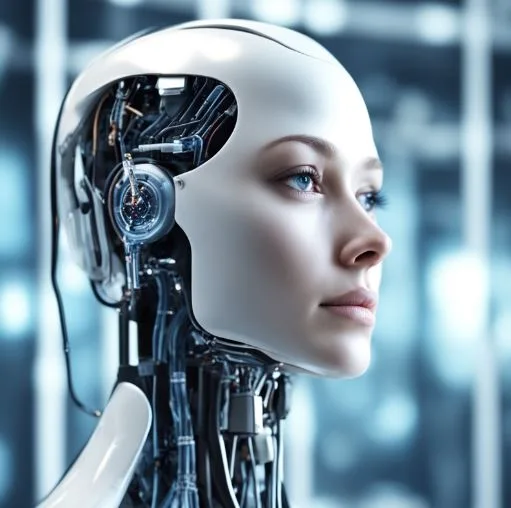Elon Musk says Neuralink implanted wireless brain chip
Now it’s the turn of human beings ‘for ‘Neuralink Implant’. Elon Musk’s brain chip company, Neuralink, has implanted its wares into a human, despite the unfortunate fate of many of the monkeys it has experimented on. In a post on X ( former Twitter), Elon Musk said ” The first human received an implant from @Neuralink yesterday and he is recovering well,” adding that “initial results show promising neuron spike detection,” according to The Associated Press. The company’s goal is to connect human brains to computers to help tackle complex neurological conditions.

In May 2023, the company got the permission from FDA to test the chip on humans. That gave the green light for the start of the six-year study during which a robot is being used to surgically place 64 flexible threads, thinner than a human hair, onto a part of the brain that controls “movement intention”, according to Neuralink.
In the ever-evolving landscape of technological advancements, Elon Musk’s Neuralink has emerged as a groundbreaking initiative, aiming to revolutionize the way we interact with and understand the human brain. As the company prepares to conduct implant tests,
However, it is very important to look into the potential of Neuralink, its pros, and the ethical considerations that surround this ambitious venture.
Also Read Hamda Taryam: Condolences Floods in for 24 Year Emirati Racer after untimely death
Also Read Bigg Boss India: A Deep Dive into Popularity and Economy behind the Show
The Vision Behind Neuralink:
Neuralink, founded by Elon Musk in 2016, envisions a future where humans can seamlessly merge with artificial intelligence, enhancing cognitive abilities and addressing neurological disorders. The core idea involves developing brain-machine interfaces (BMIs) that connect the human brain to external devices, allowing for bidirectional communication.

Pros of Neuralink Implant:
- Medical Breakthroughs:
- Neuralink holds promise for treating various neurological conditions, such as paralysis, epilepsy, and even mental health disorders. The technology may provide a revolutionary avenue for medical breakthroughs and improved patient outcomes.
- Cognitive Enhancement:
- The potential for cognitive enhancement is a significant pro. Neuralink could enable individuals to augment their mental capacities, enhancing memory, learning, and problem-solving skills.
- Technological Integration:
- As the technology advances, Neuralink could facilitate seamless integration with external devices and systems, opening new possibilities for human-computer interaction and reducing technological barriers.
- Advancements in AI Development:
- Neuralink’s research could contribute to the development of more sophisticated artificial intelligence systems by enabling faster and more direct communication between human brains and machines.
Cons and Ethical Considerations:
- Privacy Concerns:
- The prospect of having a direct interface with the brain raises significant privacy concerns. Access to neural data could lead to potential misuse, unauthorized access, or unintended exposure of personal thoughts.
- Inequality and Accessibility:
- The technology’s availability may create disparities, with only those who can afford the implant benefiting from its advantages. Ensuring equitable access to Neuralink is a crucial consideration to avoid exacerbating existing social inequalities.
- Security Risks:
- Like any technology connected to the internet, Neuralink implants may pose security risks, including hacking and unauthorized access. Ensuring robust cybersecurity measures will be paramount to address potential threats.
- Unintended Consequences:
- The long-term effects of Neuralink implants on human health and well-being are not fully understood. Unintended consequences, both physical and psychological, may emerge over time, requiring careful monitoring and ethical considerations.
- Ethical Questions about Autonomy:
- Questions regarding the ethical implications of altering human cognition and autonomy arise. As we enhance cognitive abilities, there is a need to carefully navigate the ethical boundaries surrounding personal identity and agency.
The Neuralink implant tests mark a significant step towards realizing Elon Musk’s vision of a symbiotic relationship between humans and artificial intelligence. While the potential benefits are groundbreaking, the ethical considerations and potential societal impacts must not be overlooked. Striking a balance between innovation, privacy, and accessibility will be key to ensuring that Neuralink contributes positively to our collective future, ushering in a new era of human-machine collaboration. As we witness the unfolding of this technological frontier, the conversation around Neuralink continues to shape the intersection of neuroscience, technology, and ethics.

